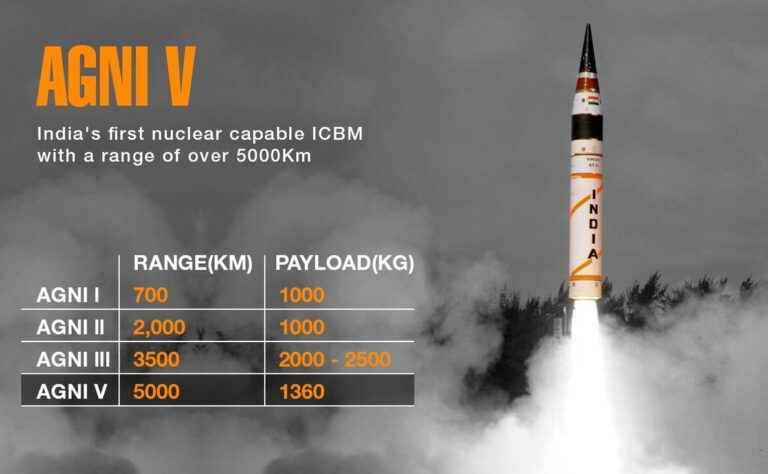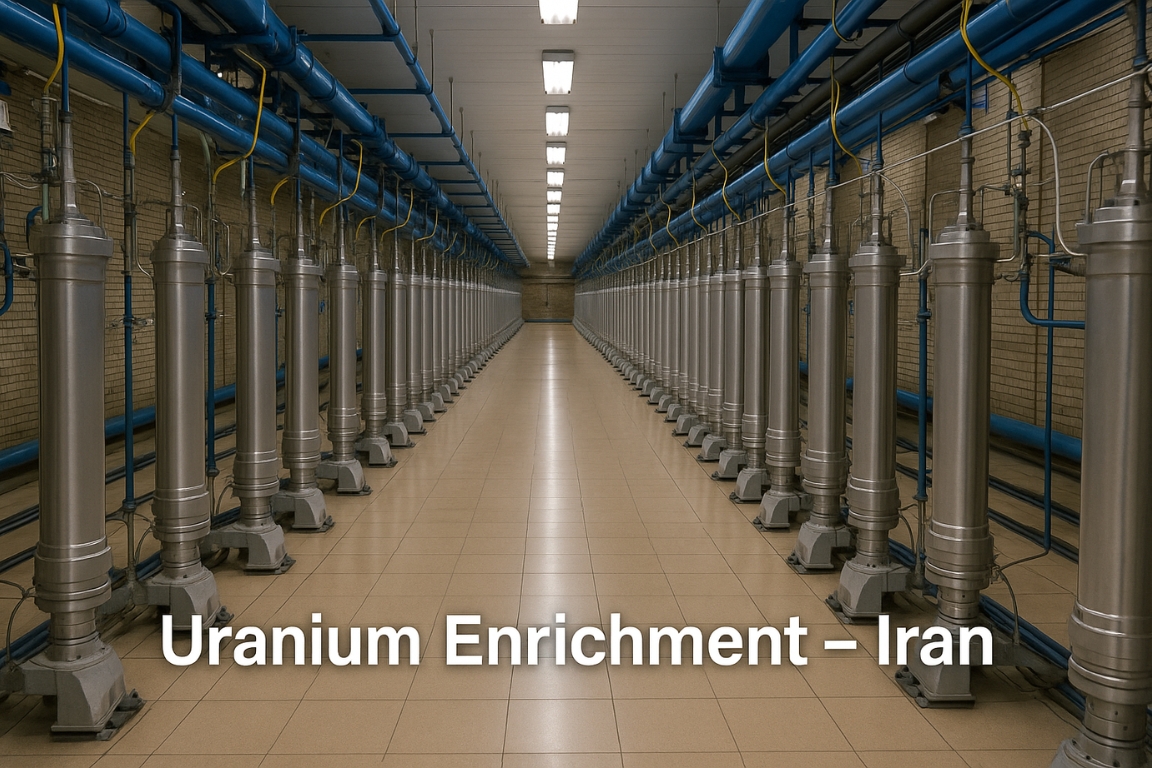India has recently conducted a successful flight test of the Agni-5 Intermediate Range Ballistic Missile (IRBM) under the Strategic Forces Command (SFC). The test reaffirms India’s commitment to credible minimum deterrence and strengthens its nuclear posture amid growing regional security challenges.
Features of Agni-5 Missile
- Type: A nuclear-capable, surface-to-surface ballistic missile designed for long-range precision strikes.
- Range: Exceeds 5,000 km, covering vast areas of Asia and parts of Europe.
- Propulsion: Powered by a three-stage solid-fuel engine, ensuring higher stability and quick launch readiness.
- Trajectory: Follows an unpowered ballistic path after initial rocket boost.
- Developer: Built indigenously by the Defence Research and Development Organisation (DRDO).
- Programme Link: Part of the Integrated Guided Missile Development Programme (IGMDP) that also developed Prithvi, Nag, Akash, and Trishul.
- MIRV Technology: Potential to carry Multiple Independently Targetable Re-entry Vehicles (MIRVs), allowing a single missile to strike several targets.
Strategic Significance
- Places India in an exclusive group of countries (US, Russia, China, France) with comparable missile technology.
- Strengthens credible deterrence under the Nuclear Command Authority (NCA).
- Enhances second-strike capability crucial for India’s No-First-Use (NFU) doctrine.
- Counters China’s missile arsenal and provides extended security cover over the Indo-Pacific.

Current Relevance
- The test comes at a time of heightened border tensions with China and regional instability in the Indian Ocean.
- In April 2025, India also tested Agni-Prime (Agni-P), a newer missile variant with improved accuracy, highlighting continuous modernisation of strategic forces.
- Aligns with India’s aim of strengthening its role in global non-proliferation forums while maintaining strategic autonomy.
Conclusion:
The issue of machine-readable electoral rolls reflects the need to balance transparency with voter privacy. Ensuring secure and regulated access can strengthen both electoral integrity and public trust.





